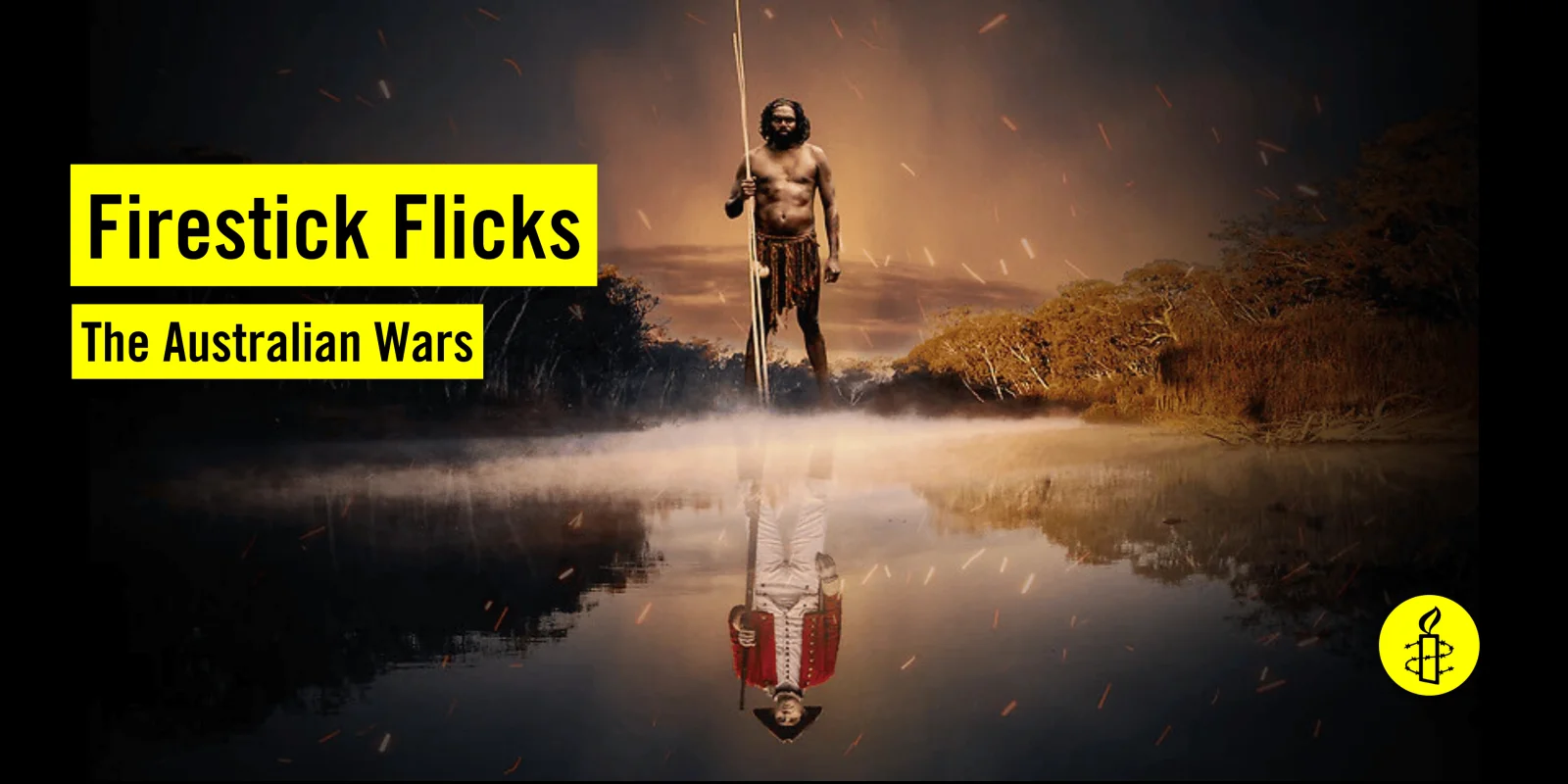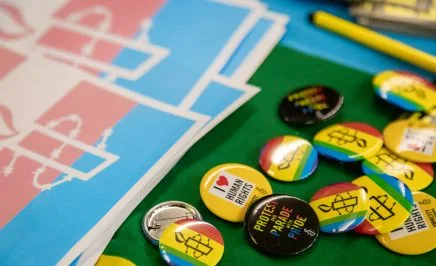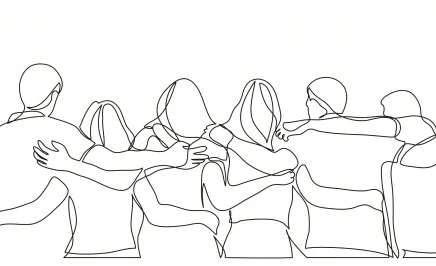Accessibility – The Amnesty International website has built in accessibility tools to help ensure that our activism is inclusive. To open the accessibility menu click on the accessibility icon located at the bottom right of your screen.
Last month, Amnesty International Australia’s Indigenous Rights team launched a new film club, Firestick Flicks, as part of our NAIDOC celebrations.
This monthly film club aims to encourage Amnesty activists, staff, and supporters to watch First Nations films and documentaries, by providing supporting resources, discussion prompts, and reflections to foster deep learning and understanding on the path to reconciliation. We will be focusing on films that are free to access on ABC iView or NITV/SBS On Demand, so that everyone can get involved!
This month’s Firestick Flicks film is The Australian Wars – specifically Episode 2, focusing on the Tasmanian Frontier Wars (featuring Uncle Rodney Dillon)
You can join Uncle Rodney Dillon online this Friday August 9 at 5:00 pm for a discussion on the documentary. Register below!
The story of the frontier wars in post-colonial Australia has mostly been untold, despite being the longest and perhaps the most defining war in this country’s history. This three-part docuseries, directed and presented by Arrernte and Kalkadoon woman Rachel Perkins, reveals the true stories of the frontier wars, and the resistance of First Nations peoples.
Episode 2 features Amnesty International Australia Indigenous Rights Advisor Uncle Rodney Dillon, and explores the absence of public memorials relating to Frontier Wars in Tasmania, on an island characterised by its colonial past and declaration of martial law in an attempt to eradicate the First Peoples of this land.
Please note: there are references of the word ‘Aborigine’ used in the documentary which can have negative connotations for many Aboriginal people. It is recommended to use the following terms: First Nations, Indigenous or Aboriginal and Torres Strait Islander peoples.
How can you get involved?
- Cosy option: Get together with your family and friends for a movie night at home
- Feeling a bit more social: Organise a screening for your group or local community
To maximise attendance and impact, it is helpful to:
- Combine the film screening with a meal or morning/afternoon tea, which also encourages people to stay on after the film to talk and take action
- Discuss AIA’s Raise the Age campaign, and encourage attendees to sign our petition calling for adequate justice reinvestment funding for alternatives to prison, such as First Nations led diversion programs.
- Publicise your film screening well and try to draw in people from outside Amnesty circles, using social media, email lists, posters, leaflets etc
- Partnering with other groups or organisations helps spread the workload and brings in a broader audience. Councils, libraries and Tourist Information centres can all be useful partners with the ability to promote it widely
Resources
In terms of resources, we have the following:
Feeling peckish?
If you are looking for snacks and beverages for your film screening, these are some First Nations businesses that you could try:
- Yaala Sparkling Water
- Yaru Mineral Water
- Jala Jala chocolate
- Indigiearth spices to sprinkle on your popcorn, or relishes for a grazing platter
- Binjang Tea
- Blak Brews
- Mabu Mabu hot chocolate
- Sobah Beverages
Looking for a venue?
You could have a look around your local area to see whether there are any First Nations cafes or restaurants who may be able to cater for your film screening.
(Mudgee crew should definitely check out Sharon Winsor’s Warakirri Dining Experience, and people in South East QLD could reach out to Clinton Shultz at Sobah Brewery and Cafe!)
Discussion questions to get you thinking…
1. In the episode, Rachel Perkins said “More Tasmanians died in the Frontier Wars than the number of Tasmanians that died in Korea, Malaysia, Indonesia, Vietnam and peacekeeping missions combined.” What did you think when you heard this?
2. Do you know if your local community commemorates the Frontier Wars at all? Do you know of a community that does commemorate it?
3. Tongerlongeter was a leader of the Oyster Bay people. Why do you think he was so highly regarded then and today?
4. How did the declaration of martial law impact both the early settlers and Aboriginal people during the Frontier Wars in Tasmania?
5. Rachel Perkins says: “The board did not match Tongerlongeter’s experience of British Law” What was his experience? Does history record a different version of events – how so? What are your thoughts on the ‘public relations campaign’?
6. Why do you think Warradee, Truganini and Mannalargenna convinced their people to accept the promise of security at Flinders Island? Did they have reason to trust Robinson?
7. Why do you think shell necklaces are still a powerful symbol of cultural survival and strength?
Thank you to SBS and NITV for their learning resource that informed this Firestick Flicks guide.
Let us know how it went!
If you hosted a film screening, please fill in this Event Form and let us know how it went!
Feel free to email any photos to activism@amnesty.org.au
Safeguarding the well-being of yourself and others
Campaigning for human rights can be difficult. Burnout and vicarious trauma can happen and it’s important to keep a look out for the signs in yourself and your friends. You can check out our Sustainable Activism & Self Care guide as a starting point to ensure that you are looking after yourself and others while doing this important work. It examines how we can better take care of ourselves as activists and what you can do to make sure your activism is sustainable!
As a global movement of 10 million people, and 500,000 people in Australia, Amnesty International has the people power to build public support for a Human Rights Act. Learn more about what are human rights and our Human Rights Act campaign work.


